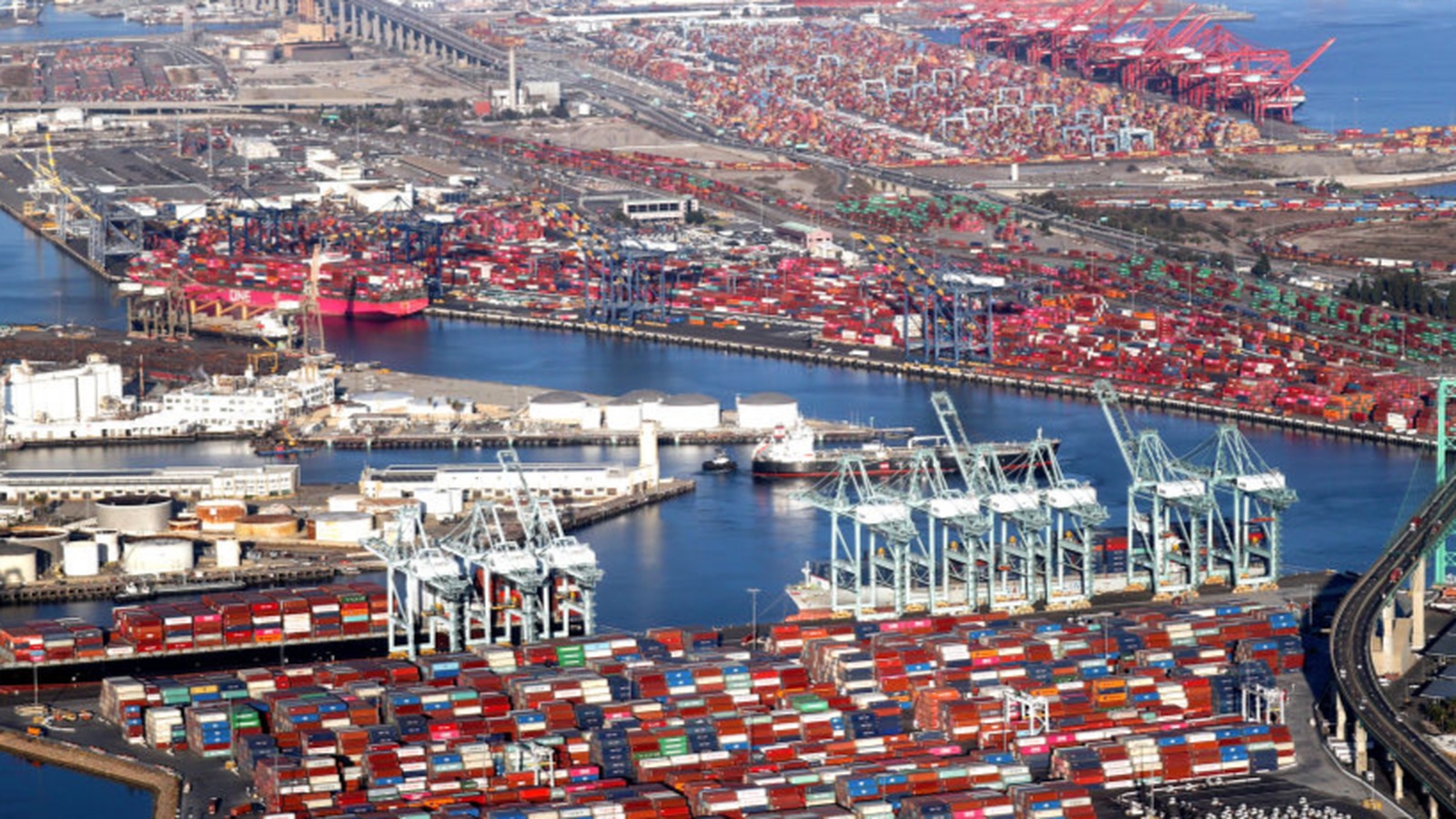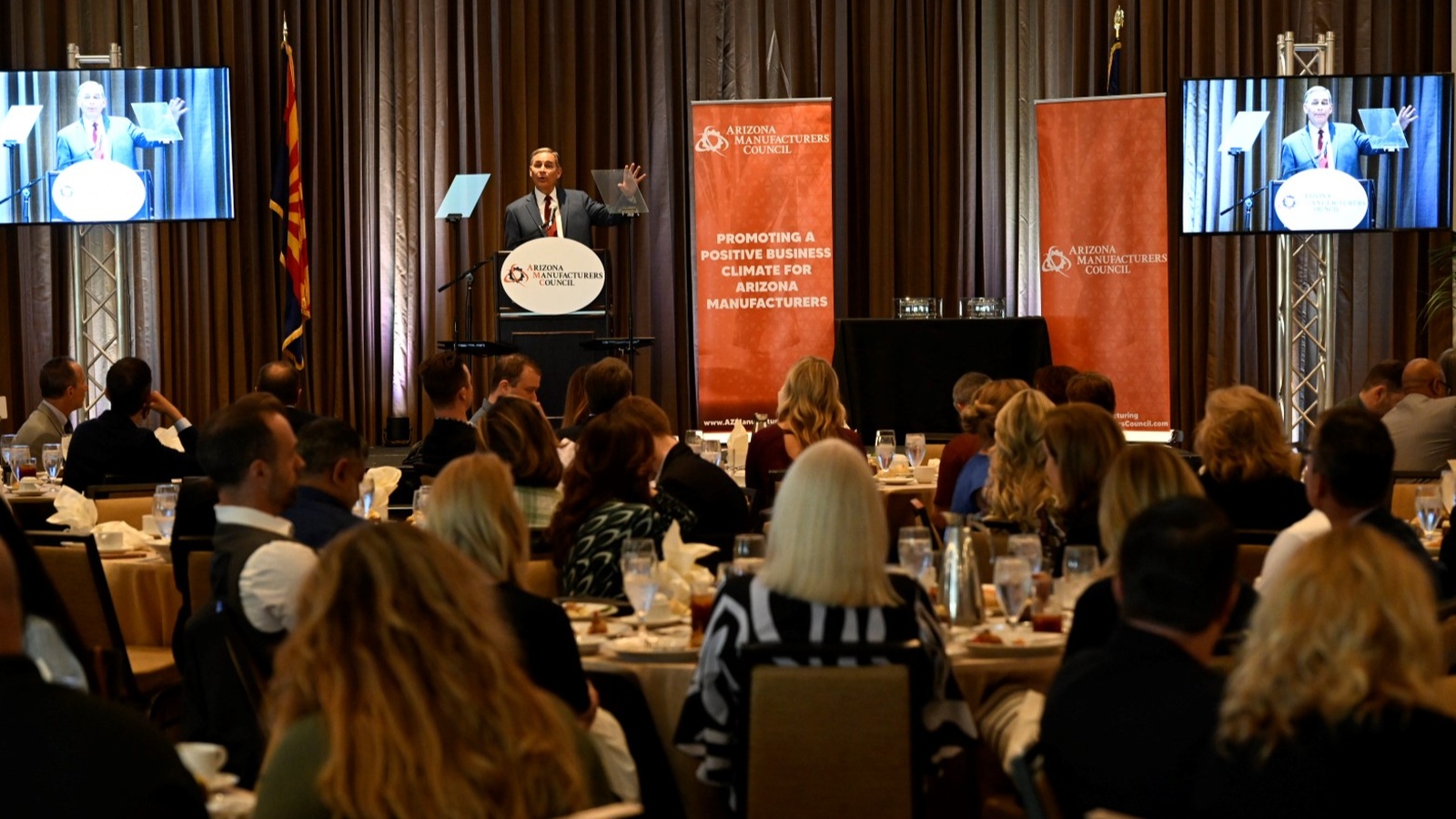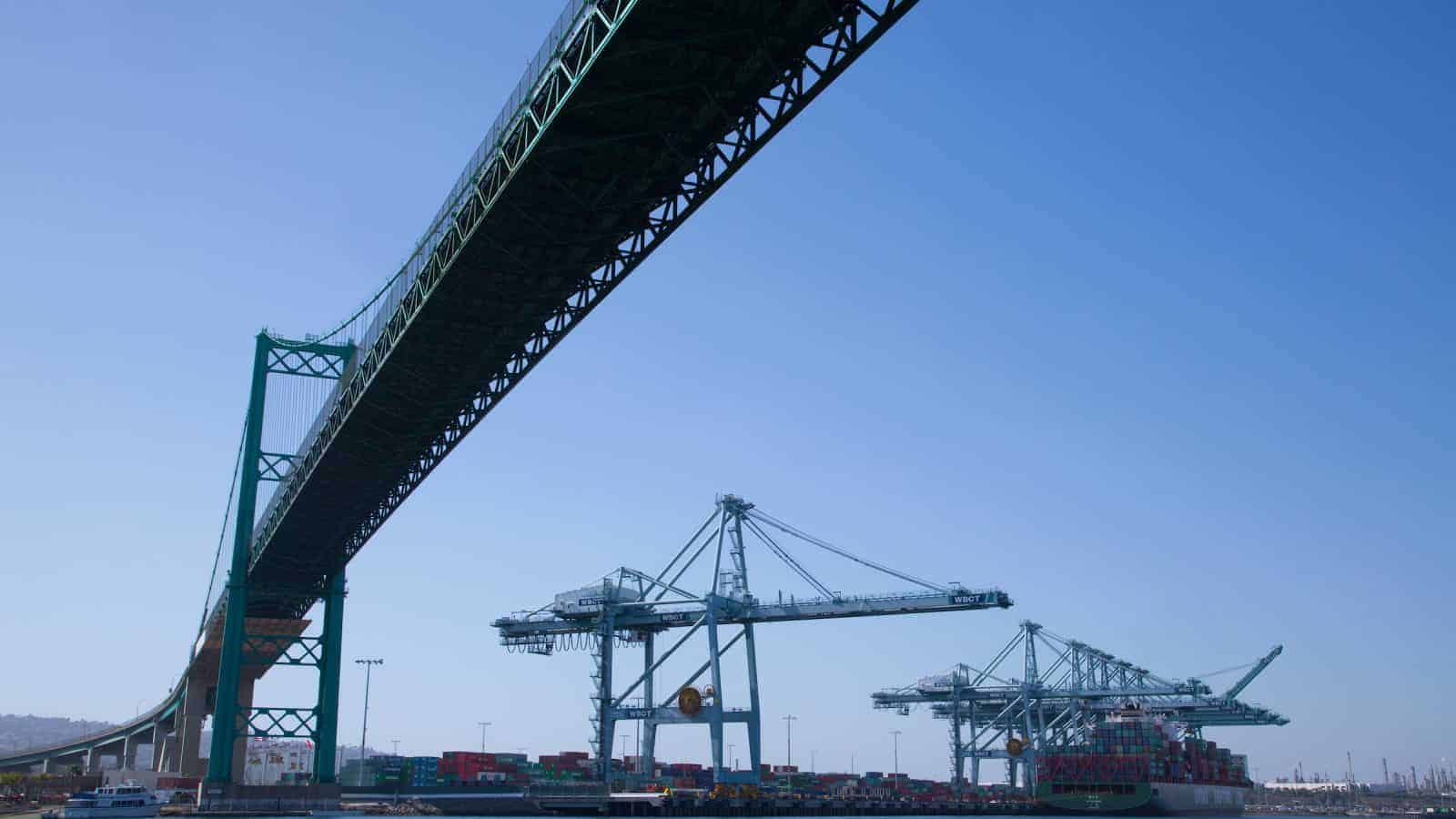Congress Fails to Advance Manufacturing Tax Priorities
Bipartisan Provisions Like R&D Incentives Are Critical to Small Manufacturers’ Ability to Invest
Washington, D.C. – The National Association of Manufacturers is calling on lawmakers to immediately address critical tax provisions that were left out of the 2023 Omnibus spending package, highlighting the negative impact to small manufacturers and their workers.
“Congress’ failure to reverse tax policies that make it more costly to perform research, buy machinery and finance job-creating investments has put hundreds of thousands of American jobs and manufacturing competitiveness at risk. Despite overwhelming support for addressing these issues, Congress’ inaction will now undercut small manufacturers’ ability to invest in their workers, facilities and communities,” said NAM President and CEO Jay Timmons.
Ketchie President and Owner and Incoming Chair of the NAM Small and Medium Manufacturers Group Courtney Silver recently highlighted that congressional action on these tax priorities will help prevent small manufacturers from feeling “stuck between a rock and a hard place. It’s very important that we take action on expanding and locking in that pass-through deduction, increasing those incentives around R&D and protecting those provisions around full expensing and interest deductibility,” said Silver.
“Although the appropriations package included important manufacturing priorities, including the INFORM Consumers Act, with its protections for consumers against counterfeit goods, and the Electoral Count Reform Act, which supports a clear and secure democratic process, pro-competitiveness tax policy changes would have made a big difference for businesses of all sizes across our industry,” continued Timmons. “As the next Congress convenes, we urge lawmakers to prioritize these policies, and we will continue to work with manufacturing champions from both parties to provide tax certainty to the nearly 13 million people who work in manufacturing today.”
Read more about how these critical tax priorities impact small manufacturers across the country here.
-NAM-
The National Association of Manufacturers is the largest manufacturing association in the United States, representing small and large manufacturers in every industrial sector and in all 50 states. Manufacturing employs more than 12.9 million men and women, contributes $2.77 trillion to the U.S. economy annually and accounts for 55% of private-sector research and development. The NAM is the powerful voice of the manufacturing community and the leading advocate for a policy agenda that helps manufacturers compete in the global economy and create jobs across the United States. For more information about the NAM or to follow us on Twitter and Facebook, please visit www.nam.org.
Manufacturers: Permitting Reform Essential to Manufacturing Growth and Competitiveness
Washington, D.C. – Following consideration today of a permitting amendment in the U.S. Senate, National Association of Manufacturers President and CEO Jay Timmons released the following statement:
“Red tape and permitting delays have plagued the manufacturing industry for decades, and the need for reform has only grown more urgent in recent years. Manufacturers have long called for Congress to repair the broken permitting process to minimize delays and reduce needless litigation that stands in the way of energy and resources projects and other investments. That will ensure we can get to work quickly on the investments that the bipartisan infrastructure law and the CHIPS and Science Act make possible. It will also ensure manufacturers have access to reliable and affordable energy while the grid evolves and as we work to improve air quality and reduce greenhouse gases.
“Ultimately, permitting reform effects every part of the American supply chain—from modernizing energy projects to building new manufacturing facilities. Today’s Senate vote, while unsuccessful, should serve as a step toward true bipartisan reform. Manufacturers appreciate the efforts of Sens. Joe Manchin and Shelley Moore Capito to push this priority forward, and we will continue to work with both chambers to achieve this goal.”
-NAM-
The National Association of Manufacturers is the largest manufacturing association in the United States, representing small and large manufacturers in every industrial sector and in all 50 states. Manufacturing employs more than 12.9 million men and women, contributes $2.77 trillion to the U.S. economy annually and accounts for 55% of private-sector research and development. The NAM is the powerful voice of the manufacturing community and the leading advocate for a policy agenda that helps manufacturers compete in the global economy and create jobs across the United States. For more information about the NAM or to follow us on Twitter and Facebook, please visit www.nam.org.
Manufacturers: President Biden and Congress Have Averted a Holiday Crisis
Washington, D.C. – National Association of Manufacturers President and CEO Jay Timmons released the following statement after President Biden signed H.J. Res. 100 into law, concluding the collective bargaining process between Class I railroads and all labor unions representing the freight rail workforce and eliminating the threat of a disastrous rail strike.
“Thanks to swift action from President Biden and his administration, and bipartisan cooperation in Congress, a holiday supply chain disaster has been averted.
“Earlier this year, manufacturers called for and supported the creation of the Presidential Emergency Board to rectify the stalemate between the unions and railways. But when it became clear they wouldn’t reach a negotiated resolution, we called on Congress to act, as a freight rail shutdown would have been devastating to the manufacturing industry, the U.S. economy and all American families.
“We thank President Biden, Secretaries Walsh and Buttigieg as well as manufacturing allies in Congress for listening to our industry and working quickly to avert this crisis.”
-NAM-
The National Association of Manufacturers is the largest manufacturing association in the United States, representing small and large manufacturers in every industrial sector and in all 50 states. Manufacturing employs more than 12.9 million men and women, contributes $2.77 trillion to the U.S. economy annually and has the largest economic multiplier of any major sector and accounts for 58% of private-sector research and development. The NAM is the powerful voice of the manufacturing community and the leading advocate for a policy agenda that helps manufacturers compete in the global economy and create jobs across the United States. For more information about the NAM or to follow us on Twitter and Facebook, please visit www.nam.org
Rail Unions Move Closer to National Strike

Another large labor union has voted to reject the rail deal brokered in part by the Biden administration, moving the industry closer to a strike, according to CNBC.
Split decision: Two of the largest railroad labor unions in the United States went separate ways during their contract ratification votes, which were announced on Monday. The Sheet Metal, Air, Rail and Transportation Workers – Transportation Division voted against the proposed agreement by a slim margin, while the Brotherhood of Locomotive Engineers and Trainmen voted to ratify it.
What it means: This latest action raises the likelihood of a rail work stoppage in early December. In total, 8 of 12 unions have now ratified the tentative agreement concluded in September while the rank-and-file membership of 4 unions have rejected it.
- Should one union choose to go on strike, the broad impact would cripple the national freight rail network.
The impact: The railroad industry and major shipping groups have found that a strike would likely cost around $2 billion per day, also according to CNBC. It would affect every major rail operator.
- “The American Chemistry Council, which represents companies including 3M, Dow, Dupont, BP, Exxon Mobil and Eli Lilly, said a rail strike would impact approximately $2.8 billion in chemicals cargo a week, and lead to a GDP decline and renewed inflation.”
- “Other industries, from agriculture to retail, have warned of the economic risks of a strike.”
Next steps: Negotiations will continue through a cooling-off period that runs until early December. If a deal is not reached by 12:01 a.m. EST on Dec. 5, a strike could occur. The NAM and others have urged Congress to take action under the Railway Labor Act and pass legislation that would avert a strike if railroads and rail unions cannot reach such a deal.
What we’re saying: “Manufacturers are disheartened by today’s news on the further unraveling of rail negotiations,” said NAM President and CEO Jay Timmons. “It’s clear that Congress, both Democrats and Republicans, must be prepared to work together immediately to avert a rail strike and prevent further damage to our supply chain.”
Manufacturers Urge Swift Resolution to Ongoing Rail Negotiations
Washington, D.C. – National Association of Manufacturers President and CEO Jay Timmons released the following statement as negotiators work to reach an agreement between Class I railroads and all labor unions representing the freight rail workforce. Several organizations have not yet ratified the deal tentatively agreed to by union leadership and rail industry representatives in September that delayed the possibility of a strike.
“Manufacturers are urging congressional leaders to be prepared to bring stability and predictability to the economy if a rail strike and shutdown occurs. We already face economic turmoil with rising costs, product shortages and high inflation. Any nationwide rail strike or shutdown will cause even more economic pain. Manufacturers urge all parties to work rapidly—for the good of the country—to conclude this collective bargaining process.”
Background: A rail strike could begin as soon as 12:01 a.m. EST on Saturday, Nov. 19. Currently, the majority of the unions representing the rail workers have agreed to extend that deadline to Friday, Dec. 9, though a unanimous decision to maintain the status quo is required for that extension.
On Thursday, Oct. 27, the NAM joined hundreds of other associations in calling on President Biden to ensure a swift resolution and reiterating support for the work of the Presidential Emergency Board, which has aided in the talks.
Currently, the American freight rail network accounts for nearly 40% of total freight volume, and a strike or delay in finalizing a long-term contract would have devastating impacts across surface supply chain networks and economic output.
-NAM-
The National Association of Manufacturers is the largest manufacturing association in the United States, representing small and large manufacturers in every industrial sector and in all 50 states. Manufacturing employs more than 12.9 million men and women, contributes $2.77 trillion to the U.S. economy annually and has the largest economic multiplier of any major sector and accounts for 58% of private-sector research and development. The NAM is the powerful voice of the manufacturing community and the leading advocate for a policy agenda that helps manufacturers compete in the global economy and create jobs across the United States. For more information about the NAM or to follow us on Twitter and Facebook, please visit www.nam.org.
NAM VP Monahan Talks International Economics

As the manufacturing industry grapples with disruptive forces in the U.S. and around the world, companies are looking for more certainty and opportunity.
NAM Vice President of International Economic Affairs Ken Monahan spoke about these issues with UPS President of International Public Affairs Penelope Naas in a panel discussion during the UPS Supply Chain Solutions virtual conference on Oct. 5.
The big idea: “Manufacturers of all sizes must be able to compete in a global economy by selling not just to consumers in the U.S., but also to billions of consumers globally,” said Monahan.
- “For us, international economic growth is core to our DNA—and it is absolutely critical that we increase opportunities for those 95% of the global population that lives outside of the U.S.”
- The NAM emphasized these broad priorities in its just-released “Competing to Win” policy agenda.
The challenge: “We’ve just seen wave after wave of supply chain disruptions, and the impact that that’s happening on the ability of manufacturers to operate and engage not just in the U.S. but globally,” said Monahan. “In a recent quarterly survey [of NAM members], 78% of our leaders listed supply chain instructions as a primary business challenge.”
- According to Monahan, the global nature of manufacturing underscores “the importance of our industry working to ease the types of global supply chain bottlenecks that are impacting so many businesses around the world … easing uncertainty and … knocking down unfair trade barriers that continue to stymie the growth of economic activity globally.”
Problems and solutions: Monahan named COVID-19, the Russian invasion of Ukraine and disclosure requirements that require more scrutiny of supply chains as key factors impacting manufacturers—and emphasized the need for diverse sources of products to ensure supply chain resiliency in the future.
Building partnerships: Monahan pointed to the importance of robust trade agreements and partnerships with economic allies to secure resilient supply chains and promote fair competition.
- “When it comes to trade, we need to think through ways in which we can deepen our partnerships with our friends and allies,” said Monahan. That means “seeking trade agreements and cutting-edge, best-in-class frameworks with our trading partners to encourage increasing standards to U.S. levels.”
Monahan also noted a series of ongoing U.S. efforts with global trading partners, including in the Indo-Pacific region, Europe, the Americas and Kenya. He made clear that the NAM is working to promote new agreements that open markets, strengthen U.S. innovation and technology standards and increase global standards around trade rules, among other priorities.
- Such U.S. global engagement is “demonstrating to manufacturers that the U.S. is back on the field,” said Monahan. “But at every opportunity, we are pushing the administration to think bigger, be even more ambitious and take this opportunity in front of it.”
Promoting transparency: Monahan spoke about the importance of manufacturers’ insight into their supply chains.
- “Companies need to be knowledgeable about as many tiers of their supply chains as possible and have strong due diligence and compliance programs in place to ensure to the maximum extent possible that goods are not being sourced or sold to entities that use forced labor or are on various export control lists,” he said.
The last word: “We need to be able to really put forward and advance the same principles globally that we do here at home as manufacturers: nondiscrimination, fairness, equal opportunity and competition,” said Monahan. “We are at our best when we are advancing those priorities globally and in the U.S.”
Timmons Lays Out Manufacturing Priorities

NAM President and CEO Jay Timmons is on a barnstorming tour of the U.S., to raise more support among leaders for addressing supply chain challenges, creating more manufacturing jobs and making the country more resilient. He brought this message to the 2022 Arizona Manufacturing Summit in Phoenix, Arizona, yesterday.
Manufacturing’s strength: “I’m pleased to report that manufacturers are shattering expectations across the United States,” said Timmons. “Here’s one encouraging fact: manufacturers have now recovered all the jobs the industry lost at the start of the pandemic—and then some. There are more than 12.8 million people working in manufacturing… And that’s because we’re doing what we’ve always done. We’re solving problems, we’re innovating and leading into the future.”
Challenges ahead: “Inflation has reached the highest level in decades,” said Timmons. “Supply chains are still strained, making it harder to move resources and products. Global instability—especially Russia’s war on Ukraine—shows us it’s more important than ever that we secure domestic energy supplies.”
- “We’re facing a workforce crisis, with less than six job seekers for every ten jobs in America. And almost 70% of Americans today say the country is on the wrong track. Now, we’ve seen some moments of historic bipartisan action in Washington … But there is so much more to be done.”
Competing to Win: Timmons pointed to the NAM’s policy roadmap, “Competing to Win,” which offers an agenda for manufacturing competitiveness on issues including the following:
- Taxes: “We need U.S. tax policy to keep up and encourage more industrial investment here,” said Timmons. “So, we’re calling for making the 20% deduction for pass-through income permanent—and expanding it. The small and medium-sized businesses here deserve confidence that they won’t lose that all-important tool. And we need to fix provisions of the tax law that are making R&D and capital investment more expensive starting this tax year.”
- Trade: “While we’re working on tax policy here at home, we also need to expand opportunities to sell our products overseas,” said Timmons. “Exports are part of our industry’s lifeblood. That means policymakers should hold countries accountable for practices that harm manufacturers in the U.S. We should continue pursuing cutting-edge trade deals, while ensuring that the agreements already in place are delivering for our industry. And we should reject policies at international bodies like the World Trade Organization that would take away intellectual property rights.”
- Immigration: “We need Congress to fix the broken, unreliable immigration system,” said Timmons. “Clearly, we need border security, and we need more avenues for people to come legally and work. It’s critical to our economic competitiveness—and consistent with our values.”
The way forward: “It can be disheartening to know that so many Americans don’t believe the country is on the right track,” said Timmons. “But a focus on policy—getting things done, rather than blaming each other—can change that. And manufacturers are positioned to lead. The work we do to create jobs and to improve the quality of life is essential, and we can’t let up. We won’t let up.”
Manufacturers Help Hurricane-Hit Communities

Hurricane Ian’s devastating landfall in Florida Wednesday afternoon marked the second significant storm to hit the U.S. and territories in less than two weeks. But as is usually the case when catastrophe strikes, manufacturers are already among those leading the charge to help the communities affected.
Manufacturers mobilize: In Puerto Rico, where approximately one-third of all residents remain without power following Hurricane Fiona Sept. 18, manufacturers including Dow, UPS, Coca-Cola, Ecolab and Toyota are funding product donations across the island through NAM partners Good360 and SBP.
What’s happening: These NAM partner organizations are providing on-the-ground updates and working to get products where they’re needed most. Items of greatest need include:
- Solar-powered power generators;
- Nonperishable foods and ready-to-eat meals;
- Mold remediation products;
- Oxygen tanks;
- Hygiene kits and supplies;
- Drinking water;
- New clothing; and
- School supplies.
Meanwhile, the work is just beginning in Florida to respond to Hurricane Ian, with anticipated items including drinking water, nonperishable foods, hygiene kits, tarps, blankets and mold remediation products.
NAM in action: The NAM’s Emergency Response Committee is an employee-led, volunteer group that works year-round with nonprofit partners, including Good360, SBP and Project HOPE, to provide NAM members with disaster-preparedness resources and training.
- These resources, which include e-learning modules, fact sheets and webinars, enable manufacturers to support their employees ahead of, during and in the aftermath of disasters.
- The NAM’s ERC also helps manufacturers activate to aid their communities when disaster strikes—and it works to identify and highlight members that are leading this critical work.
Be prepared: In a webinar sponsored by the NAM’s ERC, Amanda Gallina, SBP community engagement manager, and Matt Woodruff, vice president of public and government affairs for Texas-based tank barge operator Kirby Corporation, gave their suggestions for hurricane preparation.
For businesses: Woodruff provided some commonsense advice for employers:
- Have a plan: Have a hurricane-preparedness plan and ensure that all employees understand it—before hurricane season starts.
- Make a list: Create a checklist of tasks that must be done during the season, starting with the first day.
- Set up: Create and offer remote work sites for affected communities and employees.
- Support: Provide support to the families of employees who live in disaster-hit areas.
The last word: “The NAM stands ready to provide resources and support for its manufacturing members and the communities in which they operate in all conditions,” said NAM Director of Member and Board Relations Isabelle Powell.
- “We urge members to contact their membership directors with questions on how to better prepare their team or support people in their communities.”
For more information on manufacturer disaster preparedness or to be added to the NAM’s ERC mailing list, please email [email protected].
Manufacturers: Kigali Ratification a Blueprint for Bipartisan Climate Action
Washington, D.C. – Following the Senate’s 69–27 vote to ratify the Kigali Amendment to the Montreal Protocol, National Association of Manufacturers Vice President of Energy and Resources Policy Rachel Jones released the following statement:
“The Senate’s vote to ratify the Kigali Amendment is a blueprint for the type of bipartisan climate action that meets science-based targets while strengthening manufacturing competitiveness. It will reduce emissions by the equivalent of 80 billion metric tons of CO2 by 2050, with the potential to create up to 150,000 more U.S. jobs by 2027. This action proves that if we work together—if we rise above politics and partisanship and focus on solving problems—we can make our vision of a brighter tomorrow into reality.
“Manufacturers have supported the ratification of the Kigali Amendment for years. This treaty will be a boon for manufacturing, for global trade and for products that protect health, safety, comfort and productivity worldwide. Ratification further strengthens our global leadership on the phasedown of hydrofluorocarbons and will help the U.S. hold countries like China and India accountable on emissions. This shows that we can tackle climate change while strengthening our global competitiveness as we deploy next-generation technologies.”
-NAM-
The National Association of Manufacturers is the largest manufacturing association in the United States, representing small and large manufacturers in every industrial sector and in all 50 states. Manufacturing employs more than 12.8 million men and women, contributes $2.77 trillion to the U.S. economy annually and accounts for 58% of private-sector research and development. The NAM is the powerful voice of the manufacturing community and the leading advocate for a policy agenda that helps manufacturers compete in the global economy and create jobs across the United States. For more information about the NAM or to follow us on Twitter and Facebook, please visit www.nam.org.
Manufacturers Wake Up to Welcome News of Railway Agreement
Washington, D.C. – Following news of a tentative agreement between U.S. railroad companies and unions to avoid a strike, National Association of Manufacturers President and CEO Jay Timmons released the following statement:
“This morning’s announcement of a tentative agreement between the railroads and their workers is a welcome relief. Manufacturers had been putting into place contingency plans as they were facing disruptions with moving their supplies and products. Manufacturers thank President Biden, Secretary Walsh, Secretary Buttigieg and others in the administration who understood the stakes and stepped in to help prevent a very serious nightmare for the supply chain.”
-NAM-
The National Association of Manufacturers is the largest manufacturing association in the United States, representing small and large manufacturers in every industrial sector and in all 50 states. Manufacturing employs more than 12.8 million men and women, contributes $2.77 trillion to the U.S. economy annually and accounts for 58% of private-sector research and development. The NAM is the powerful voice of the manufacturing community and the leading advocate for a policy agenda that helps manufacturers compete in the global economy and create jobs across the United States. For more information about the NAM or to follow us on Twitter and Facebook, please visit www.nam.org.
